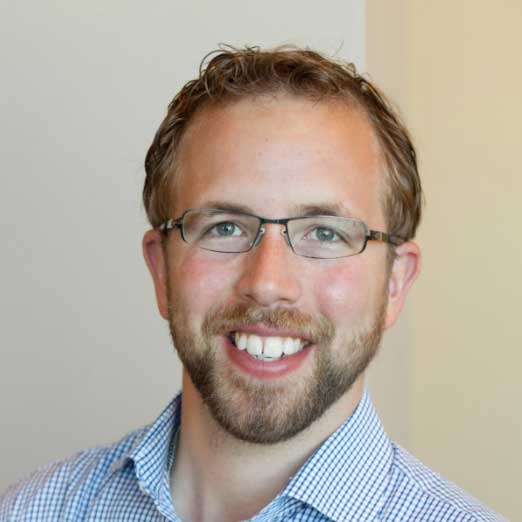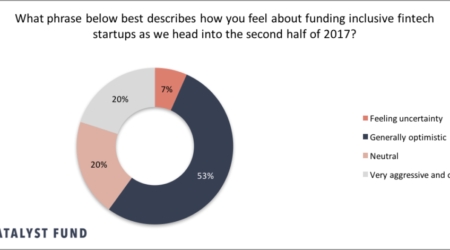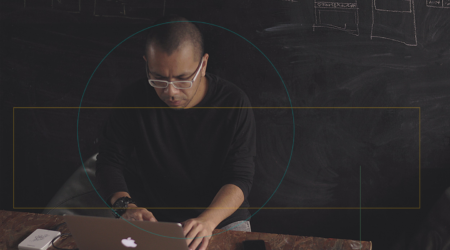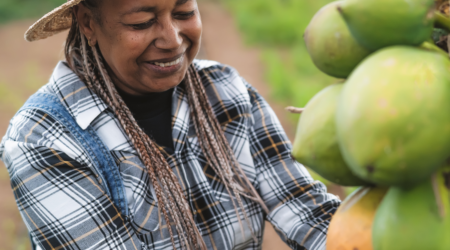An Interview with Alex Lazarow of Omidyar Network
Catalyst Fund IAC Profile Series #3

We recently had the opportunity to speak with Alex Lazarow, CFA, Principal, Investments at Omidyar Network and member of the Catalyst Fund Investors Advisory Committee (IAC).
Catalyst Fund: As one of the first members of the Catalyst Fund IAC and in your role as an investor and mentor, what are some of the insights you have gained from cohort 1 companies that would be useful to cohort 2 and 3 companies?
Alex: It has been an absolute pleasure and privilege to work so closely with the Catalyst Fund.
Globally, startups are rapidly innovating and finding new ways to partner within the financial services ecosystem. However, in many emerging markets, these startups, in their earliest phases of innovation — developing, testing and iterating their new products — face the constant challenge of securing capital. They are too early, have too few users, and have not yet achieved product-market fit to secure funding from institutional investors. In Silicon Valley, and to some degree in many developed markets, this is where angel investors step in — which by and large does not exist with even a fraction of depth in emerging markets. Catalyst Fund helps fill this critical gap. So what is not new, is that the companies we’ve had the privilege to work with have been working at the frontier of innovation, but iterating on product and business model.
In working with the Catalyst Fund Portfolio, I have a few additional reflections on learnings:
There are layers of trust building along the customer journey for the low-income segment. Catalyst Fund developed a trust building workshop for the investees, which is now available as a toolkit geared for entrepreneurs.
Understanding the customer in low-income markets is essential. Early-stage fintechs need to cultivate a deep understanding of their customer quickly as customer experience can be a key differentiator at the early stage.
The Catalyst Fund investees are more than the sum of their parts. Many of the companies are tackling different points of financial inclusion challenges, but together the innovations reinvent financial inclusion.
Making sure ecosystem around innovation is set up to succeed
Catalyst Fund: You recently wrote a post on InsureTech. What InsureTech product do you think will scale first and where, in the developing world?
Alex: As Richard Leftley, the CEO of our investee MicroEnsure likes to say, “Nobody wakes up in the morning wanting to buy insurance.” Insurance is a difficult product to offer the underbanked. Its expensive to reach customers efficiently at scale. It’s difficult to receive premiums and payout claims digitally in markets without formal financial rails. And its cumbersome to manage fraud for tiny policies.
MicroEnsure is an excellent example of a company that has innovated across these areas. They distribute primarily through mobile, in partnership with telcos. The payouts are through mobile money and the policies are simple with easily verifiable conditions (i.e. a life insurance claim can easily be verified with a photo of a death certificate). Today they have over 40 million users globally across Africa and South Asia.
The next insuretech products targeting the underbanked will take a similar tact. They will figure out a unique distribution channel to reach customers affordably, find unique data channels to underwrite policies and monitor losses, and leverage digital financial rails to collect and pay out premiums efficiently.
Investments at the intersection of financial inclusion and fintech
Catalyst Fund: How do Catalyst Fund investees WorldCover and Harvesting, which were nominated by Omidyar Network, fit into your worldview of InsurTech? How did you engage with these companies as sponsoring IAC member?
Alex: WorldCover and Harvesting are two great examples of companies innovating at the frontier of insuretech.
WorldCover is building a next generation insurance company to offer agricultural and drought insurance in Africa. They are iterating on a simple, easy to understand, and easy to price insurance coverage for Farmers in Ghana. By leveraging new types of data and analytics like satellite imagery, they aim to lower the cost of underwriting and policy management, by paying out immediately when drought is observed in a customer’s area.
Harvesting is tackling the data problem head on. They are integrating many new and often disparate data sources together, to provide customized analytics to insurance providers, like WorldCover, to better understand risk factors, underwriting risk, and to automate claims management.
Through Catalyst Fund, we engaged on multiple fronts. First as the sponsoring institution, Omidyar Network nominated the companies into the program and helped define the milestones. We stayed in touch with the companies as they progressed through the cohorts, and worked in parallel to Catalyst Fund engagements in customer journey, technology development roadmaps and partnerships development. Each companies’ needs were unique, and so was our engagement, working at the rhythm that made the most sense for the entrepreneur.
Catalyst Fund: Catalyst Fund recently completed its first programmatic year. What have you observed and learned from the Catalyst Fund model in getting early-stage fintechs investment ready? What are your thoughts on the facility (grant funding + tailored advisory + mentoring) in moving the continuum model forward for follow-on/seed investors?
Alex: Omidyar Network is a Philanthropic Investment Firm. We have a hybrid model that allows us to deploy patient capital to scale innovative solutions in the marketplace, and use our grants to fund ecosystem public goods. We understand that building a business in emerging markets is hard. We therefore work closely with our portfolio organizations across Human Capital, Intellectual Capital, Marketing and Communications among other fronts.
Catalyst Fund is a great parallel to Omidyar Network’s approach to ecosystem building. Catalyst Fund is offering non-dilutive capital to start-ups at the earliest stage, before they are ready for investment from firms like those that serve on our Investment Advisory Committee. Coupling that with tailored advice at high impact moments, help these companies get ready for their next phase of their growth.
Companies like Harvesting and WorldCover, at the time of the Catalyst Fund Investment, were too early for Omidyar Network. In many ways, Catalyst Fund is helping prime the pump for the next wave of innovation.
System wide challenges like financial inclusion requires flexible approaches that support innovation at the early stage, using a variety of levers beyond capital alone.
Catalyst Fund: You have spoken about your interest in “neobanks”. Can you share with us why this area is of particular interest to Omidyar Network and to you?
Alex: If you live in a highly-industrialized country, chances are that your bank is quite the financial supermarket — providing a range of products and services. In recent years, however, innovators have been building technology to target and disrupt the traditional financial services verticals one-by-one. In emerging markets, the starting point is different, but a similar dynamic is playing out. There, the traditional, broad-based, full service bank tends to focus on the urban, more affluent population segments. But the basic building blocks have been developed.
Some FinTech visionaries are re-bundling these disparate financial innovations to create entirely new customer-centric digital banks targeted at the mass market and underbanked. Drawing on behavioral insights and mobile-first design principles, these “neo-banks” give consumers access to powerful financial management on their phones. They are developing technological back-ends that allow them to plug into existing payment and banking systems as well providing users an opportunity to connect with other best in class fintech solutions as needed. As more of these technology-led solutions re-bundle our financial lives, myriad financial services will transform into a highly-customized menu of options tailored to each of our specific needs and integrated seamlessly across multiple platforms — a win for consumers everywhere.
Catalyst Fund: What are you reading at the moment? What blogs, industry publications, influencers do you follow to get informed about inclusive fintech and innovation?
Alex: I have the terrible habit of starting books, and getting about 100 pages into each before starting something else. I probably have 5 unfinished such books at any time, which I eventually finish. Today I’m reading:
Homo Deus: A Brief History of Tomorrow, Yuval Noah Harari
Kafka on the Shore, Haruki Murakami
At the Existentialist Café: Freedom, Being, and Apricot Cocktails with Jean-Paul Sartre, Simone de Beauvoir, Albert Camus, Martin Heidegger, Maurice Merleau-Ponty and Others, Sarah Bakewell
The Handmaid’s Tale, Margaret Atwood
The First Tycoon, T.J. Stiles
My favorite blogs, publications and podcasts include First Round Capital Blog, WaitbutWhy Blog, The Economist, Andreesen Horowitz podcast and Planet Money podcasts.
Many thanks to Alex for the interview and support for Catalyst Fund!


